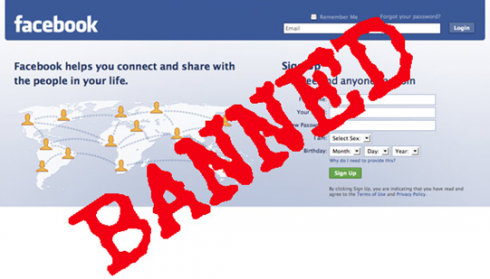Another issue related to Internet use – particularly in schools – is the restricted nature of Internet access. We have seen why this would be considered necessary, but it also stifles the ability of both teachers and students to access the resources they need. What are you able to access at your school or institution – or not? Does this work? What does this mean for an educational institution where many students have internet capable smart phones? Does this mean restrictions should be relaxed and better supervision should be utilise
---------
We are able to access most websites that I would need as a teacher. However, social media sites are blocked including Twitter and FaceBook. While I don't mind FaceBook being blocked, I use Twitter quite a bit for educational purposes. I often am reading articles or sharing my own work with other educators. However, there is a way around it - mobile devices. If I have my iPhone on me and I don't connect to the school wifi, I can still access Twitter and use it on campus. This is not ideal because I would rather be able to read things from my laptop more easily with larger font but it is a work around.

This mimics what are students are doing too. With the rise of mobile devices and unlimited data, students don't need the school network to connect to the internet. Does this mean we should abandon it? I don't think so. For our younger students especially, it is important that we have firewalls, security and safety measures in place until they understand the internet better and have more knowledge about being a digital citizenship. We don't allow cell phones in the classroom, so students shouldn't be viewing things from their mobile devices during the school day (specifically at the primary school). However, as students become older they are going to make their own choices and have more non-class time in their day that they can access social media sites from their mobile devices. The important thing is that we as educators have done our do diligence to educate students so they are prepared to make appropriate choices and act in a mature manner online.




A very thought provoking post Emily. As a primary school teacher in a fairly rural location (and we don't have a BYOD policy), I have not encountered many students who have brought their own devices to school. I imagine it would be hard to police whether students are connected to the school wifi, and therefore protected by the school's firewall, or those who select to use their own data to be able to access social media. I'm interested to learn how your school has tackled any inappropriate use in the past? Does your school follow any specific online safety programs?
ReplyDeleteAll laptops are connected through the student wifi account and requires a password from the IT department (students aren't just given these) and all personal devices are not given the password. Anyone can sign up for 1 hour of guest account access but it is often easier for students to just use their data.
DeleteWe take an educational approach to any inappropriate use whenever we can. For example, we had a few Year 6 boys looking up inappropriate pictures (firewalls don't catch everything). The teacher and the IT Director was involved in discussions with the boy and the consequence was that the boy had to produce a short segment for our Weekly Webcast for our students about what they were to do if they came across anything inappropriate on their computers.
We do not have a specific online safety programme but a thorough acceptable use policy. We are also looking at creating our own school specific digital citizenship curriculum across the entire school for next year with the curriculum being integrated into existing units where it best fits.
Hi Ms. MacLean,
ReplyDelete'For our younger students especially, it is important that we have firewalls, security and safety measures in place until they understand the internet better and have more knowledge about being a digital citizenship'. This is a good idea for younger students and provides a rich learning context as these younger students learn to be good citizens and develop their skills and understanding about communicating with ICT and specifically (use appropriate ICT tools safely to share and exchange information with appropriate known audiences- AC Level 3 -http://www.australiancurriculum.edu.au/GeneralCapabilities/information-and-communication-technology-capability/Continuum#layout=columns). This can then help these younger students become mature digital citizens in their secondary years. This can then reduce the need for restrictive practices at hte higher levels of schooling.